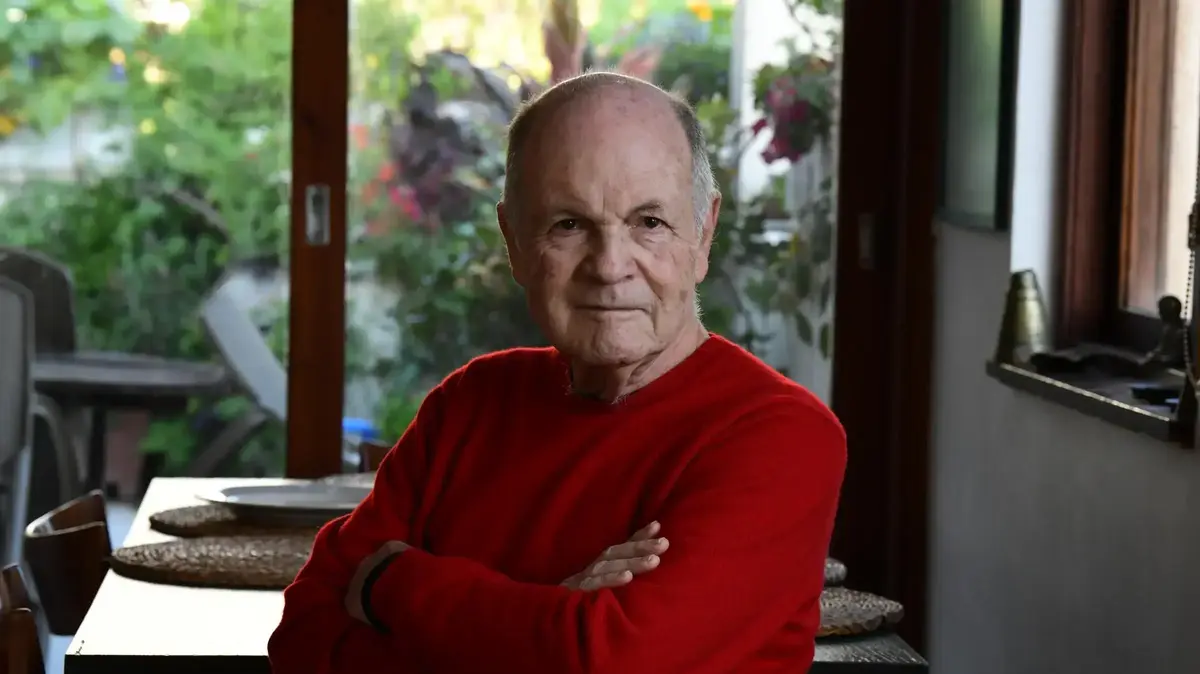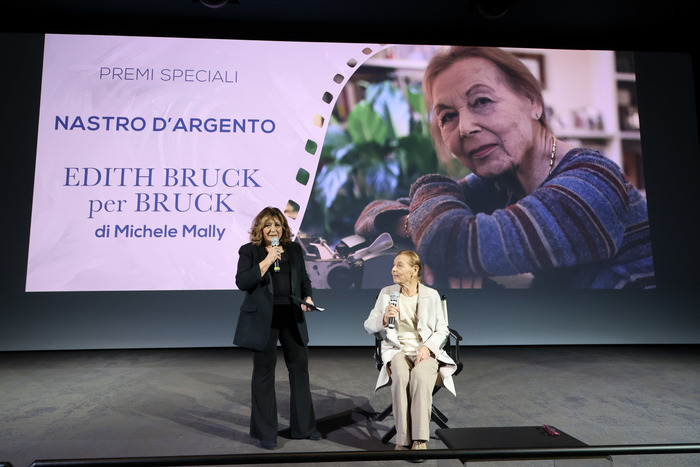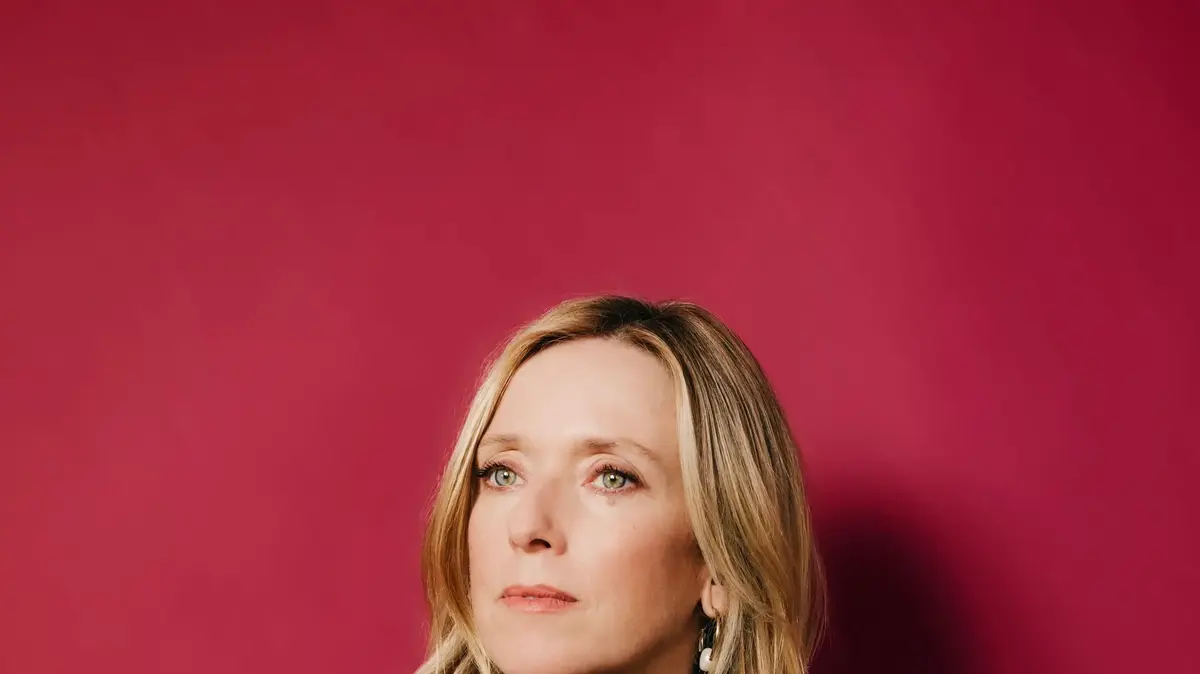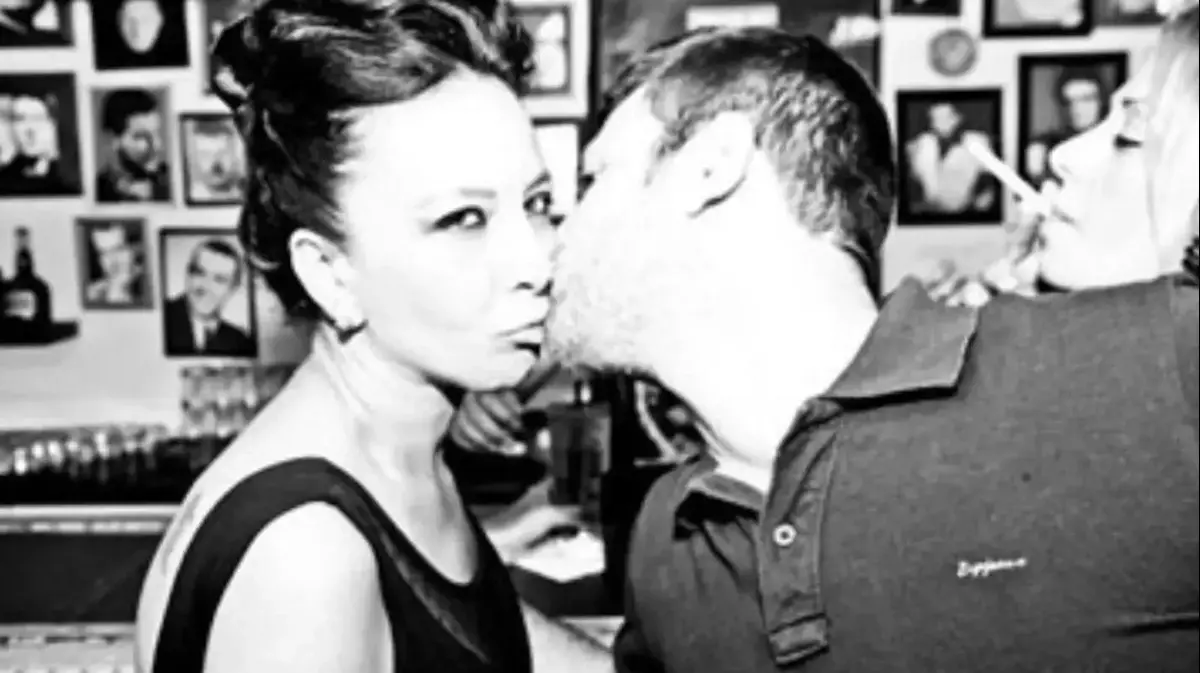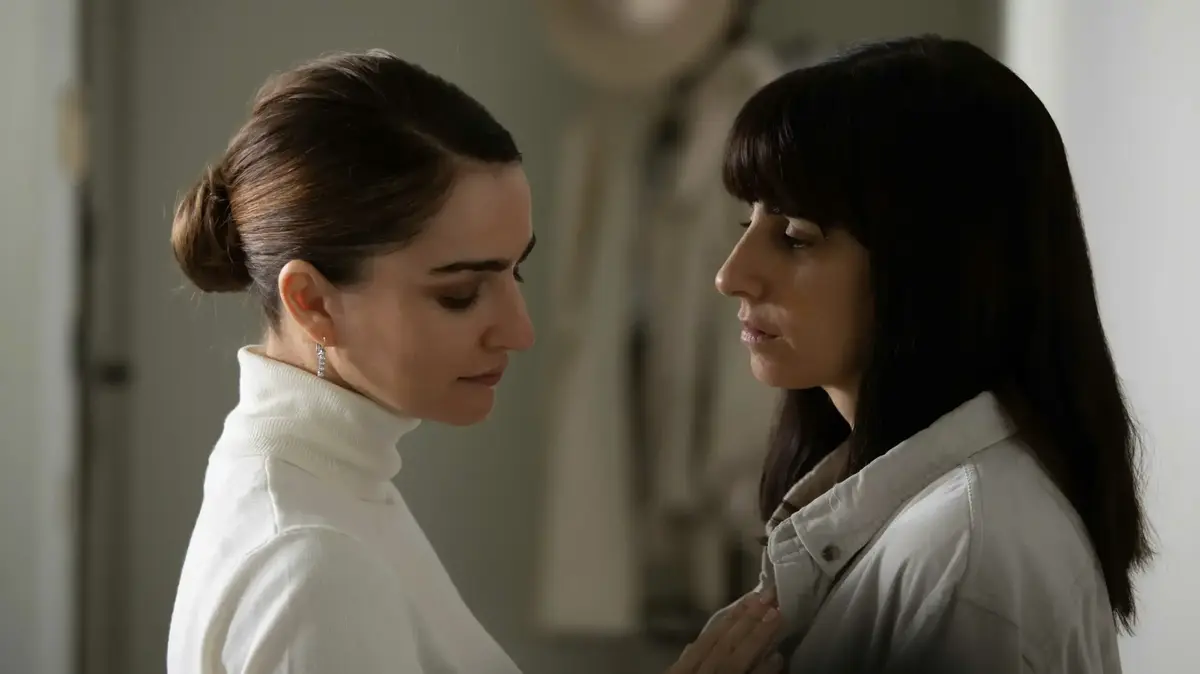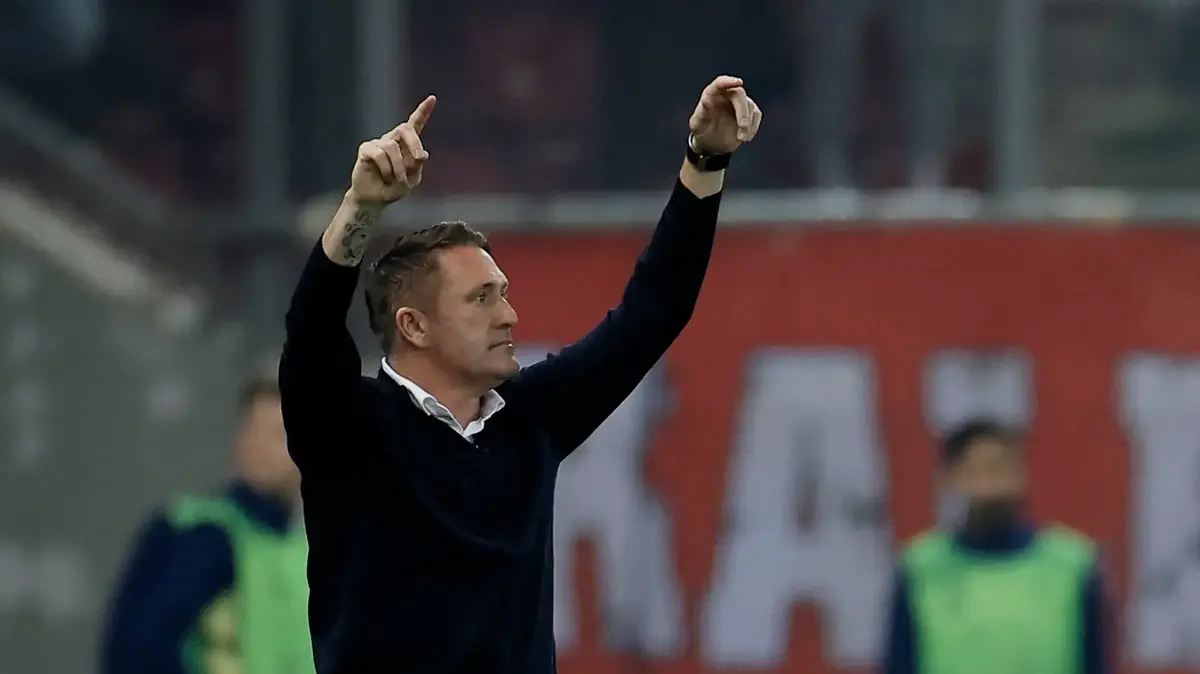"We haven't learned enough from the Holocaust"
Photo by Reuben Castro
- culture
- Theater
- Cinema News
At the age of 79, after canonical TV dramas such as "Horror Sweat," Ram Levy directed his first feature film, "The Jaffa Dead." In an interview for Walla! Culture explains why it is necessary to tell the truth about what was here in 1948 and what the process of Israeli society has to go through, and talks about the fear of Parkinson's
Avner Shavit
04/02/2020Ram Levi worked for more than a decade and a half on "The Jaffa Dead," and fate last week, just before he was released, aired the Centennial Plan, and re-enacted all the issues the film deals with - the story of life that was here until 1948, the issue of refugees and the right of return , The place of Arabs in Israeli society and the like.
"I've been used to working on a film for many years, and it comes up just when something happens in the country," says director Levy in an interview with Walla! culture. "It has happened to me in the past, though my memory is not what it was, so I can't remember the exact details."
As one of the elders and sages of the tribe, what did you think of the plan?
"I share in mocking her, and especially about her timing. As a director, I always thought body language was more important than words, and Trump's language as he listened to Bibi says it all. The restless movement to the right and left, the attempt to glance at Netanyahu's text and the wait to finally end the conversation ... Politically, this plan is one big joke, because they make a wedding here without the bride. There is no such thing. The refugee problem cannot be ignored and it will remain until there is no solution, if only partial. Until then, it will hamper any attempt to promote Arab-Jewish negotiations. " .
Movie nightBased on a script written by Levi with Gilad Evron, who passed away before filming began, the film takes place at two points in time: the present and the past. His point of departure is the story of three children fleeing from the West Bank to Jaffa, arriving at a house next to them, filming a movie that took place during the Mandate, just before the events of 1948. "The person who interests me is the Israeli, not the international, and I want him to listen well to what happened to the Arabs." Levy says as he explains what attracted him to the topic. "If I did, then I already did something."
Levi is 79, and he is one of the only active directors in the country under the Israel Prize. Quite amazingly, "The Jaffa Dead" is his first feature film. From the late 1960s until now, he directed a variety of works that are considered canonical, all of which were intended for television broadcasts - most notably, "Sword of Sweat" and "Bread," two of the television dramas of local cultural history. Long before renowned directors began directing movies to the streaming services, he worked in the small screen service, and it is now that the victory of television on the big screen is complete, the filmmaker does the opposite process and goes to the movies.
The question "Why did this happen to you just now?" He has been introduced to him so many times, that Levi jokes that he may have to answer a different answer every time. "TV or cinema - it doesn't matter, the question is you want to do it," says Levy. "I really liked working on TV and doing the things I wanted. The big screen pulled me off and put me off - because of the plethora of issues involved, money and public relations matters. I like to work quietly and quietly important to me. On the one hand, I hardly ever offered to make movies and on the other, there were I was on the verge of making an adaptation of Dan Ben Amotz's No Name Fuck, and I was unable to raise money, and there was also a big heartache: a film about the man who tried to establish a Jewish state in Sharm El Sheikh in the late century 19. I was going to film it in collaboration with British Channel 4, but eventually the manager's name changed and the money went with it, it was a period movie and needed a lot of money. If you find someone who has sixty million dollars, I would love to do it today.
What is your point of view about the eternal debate about the difference between cinema and television?
"Television is about human beings. The closer you get to the character, the bigger the screen. In cinema, on the other hand, the big screen is elevated somewhat by the people. It has the dimension of idolatry and worshiping the actors. The television is much more human and everyday."
With all your seniority, it was a preliminary project for you. Did you learn something new?
"That a movie is a big deal. The films themselves were wonderful and similar to what I know from television. The doing, the filming, the editing - the same discipline, the same dynamics. But once I got into the marketing and distribution phase, it was already a different story, much bigger and harder."
"Human television, cinema has a dimension of idolatry." Ram Levy (Photo: Reuven Castro)
Ram Levy (Photo: Reuven Castro)
Even today, the film with which Levi is most closely associated is "Sword of Horror," an adaptation of Sezhar's writings on war crimes committed by the Israeli army in 1948, and the expulsion of Arabs from their settlements in the war that year. Countless times it has been recounted how the controversial drama was censored and shelved in real time, how it was eventually possible to broadcast and what effect it had on Israeli society. This is not to be reconsidered, but one cannot help wondering what is leading the creator to dare and engage again and again on the subject hesitant to mention here - the Nakba.
"Shhh ... don't say that word, it's not allowed," Levi jokes when I mention the topic. "The power of 'Sword of Sweat' was due to being careful and suddenly saying - we are responsible, we have expelled refugees. It is a complicated and complex responsibility, because it has deep political significance. Whether you are Israeli, German or Danish, you prefer to draw a clean picture of the company from it. You come, but whoever does so is really hurting. I want to understand both sides, both Jews and Arabs. "
Who is more difficult to understand?
"You are my side, the Jews. They had such a terrible experience and everything they learned from it that a Jewish state had to be established. Human consequences had to be learned from that. To understand how a society comes to such a horror and where it grows."
Do you remember the first time you realized what happened in 1948?
"Yes, I was 15 years old, in action in the scouts. We sat near Rabin Square, I could hear the roar of the lions from the zoo that was then, and the guide told us the story you see in 'Shabat Haba'a. It was an important landmark that shook me."
How do you explain that Israeli cinema and local society in general are so reluctant to deal with the issue?
"There are two reasons for this. First of all, because of our perception of ourselves as the purest society in the world - a symbol of moral ideal. When Jazar wrote the 'Sword of Sweat' it was not in the vacuum. People knew what it was and knew what it was, but the image of the country was atonement. A sacredness that must not be touched has already become established, the feeling was that the main thing was that we established a state in response to the Holocaust, and everything that happened except marginal and insignificant.
"And there is also a political aspect. If we expel Arabs then we have a responsibility, and who wants to take responsibility? It means either their return, what seems impossible, or crazy compensation with impossible economic consequences."
How have the reactions to the film been so far?
"The Arab audience was very enthusiastic. In the screenings I had with an audience, it is evident that they are going through a very painful experience. It goes through a lot of Jews, too, but of course it is sometimes more complex. I remember a screening of 'Sword of Sweat' that was recently in the cinema in some setting. The Jewish viewers, an older man, stood up and stood with their backs to the stage and to me, addressing the audience, telling them that they should remember that the War of Independence was right and many Jews had died in it. There was a dimension of defiance here. Talking about these issues and basically telling me to get off it. "
"Shut up? Shh ... not allowed." Ram Levy (Photo: Reuven Castro)
Ram Levy (Photo: Reuven Castro)
Levi remembers the first time she was in the movies. "It was five years old, my parents went to a pension in the German colony, and I lost them. You found yourself in the nearby Smadar cinema. He was near the train and was anxious to get on the tracks," he recalls. "At the end my parents found me in the courtroom. The usher put a signal on a chair and watched the beginning of a Western I remember blurry. Is that what a filmmaker made me? I don't know. I went my father's way, an economics reporter, and studied economics at the university, but then I went to see 'Eight' And half, and then I saw him again and again and told myself I wanted to be a director. "
The director is a father of three daughters and a grandchild of seven grandchildren, and it is evident that the family is close and important to him. "I hope I'm a good grandfather, but not sure enough, probably not in times of stress like now," he said. "I die for my grandchildren. Sometimes they see it and sometimes they don't."
The director's character in the film has a daughter who serves as a personal assistant to him. It may not be coincidental that you wrote the character this way.
"She is his best friend and fiercest critic, and that's what she should be. She has a rebellion against her parents, who educated her on certain values and then screwed up. It's not necessarily what's happening to me, but the direction is familiar to me and it's something that happens in my environment."
"The director's daughter is the best and fiercest critic's girlfriend." Ram Levy (Photo: Reuven Castro)
Ram Levy (Photo: Reuven Castro)
How did you work on the cinematic language of the film?
"It's a theoretical setting I won't reply to. How did I shoot the film? So that it was filmed well. Once you ask the director to be his own surgeon, he is straightforward, or has clear and unanswered answers and then falls into the forbidden pit of unequivocal. You need that meaningful face, Anyone can see what he wants, this is not a lecture. The theory is not important and uninteresting. What is interesting is the person who exhales and exhales and enters or exits. It is absurd to explain to people what the director wanted. What, will you give a tutorial before you watch the movie? That's what I wanted, and now that everyone does their own thing. The movie came out of me and has to get into the hearts of others. "
You usually write many versions of your scripts and that was true this time as well. Do you believe a script can be good after the first try?
"Maybe theoretically. It never happened to me. I agree with the saying that writing is to rewrite, which is the most enjoyable part of the work process, especially when doing it together. It's like eating a good meal. I can't understand creators who don't have the patience and rush to get out Out with what they did. They miss the most enjoyable stage of all. "
"Bread" is also remembered as one of the great roles of Rami Danon, who passed away a few months ago. What do you remember about him?
"His power, his quietness. He remained silent throughout the filming, creating strangeness even with his girls, and the silence spoke more than anything else. There was depth in him. He was the classic model of a silent movie character, which I really like, because in what you Not saying there's always more power than what it was. He was a wonderful player. "
Past and present integrate into a real-time unit. From "The Jaffa Dead" (Photo: Yossi Milo)
Jaffa dead (Photo: Yoram Milo, PR)
Do you go to see series?
"When you make a movie you make the movie. I see very little ... I hear classical music and see news. I have seen 'The Boys', this is a good and very important series, made of great."
What does the future hold for us?
"I was once asked how I feel and said I don't remember if I am optimistic or pessimistic. Sometimes, at the beginning of the month I am optimistic and at the end I am pessimistic, and sometimes vice versa."
And you?
"Now I want to rest, but I hope this is not my last movie. You will know. I am suffering from Parkinson's and maybe he will take control of me so I cannot continue directing. At worst, I will make a shaky movie."
"At the beginning of the month I am optimistic and at the end pessimistic. Or vice versa." Ram Levy (Photo: Reuven Castro)
Ram Levy (Photo: Reuven Castro)
"'The Boys' is a great and very important series." Ram Levy (Photo: Reuven Castro)
Ram Levy (Photo: Reuven Castro)
"The Century Plan? A joke. A bridal wedding." Ram Levy (Photo: Reuven Castro)
Ram Levy (Photo: Reuven Castro)
"You see in Trump's body language what he thinks of Bibi." Ram Levy (Photo: Reuven Castro)
Ram Levy (Photo: Reuven Castro)

